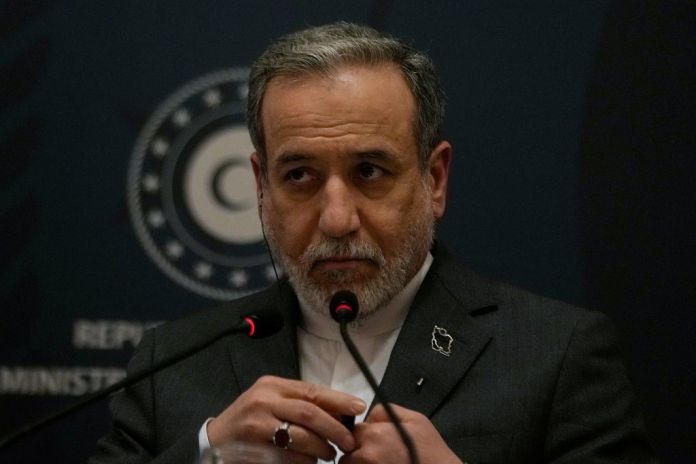Iran Isn’t Going to Like What Fair-Weather Friend Hezbollah Just Announced
The article discusses the geopolitical implications following an Israeli airstrike that reportedly neutralized high-ranking military leaders in Iran,significantly undermining its nuclear program. Notably, Iran’s typical proxy group, Hezbollah, has refrained from retaliating against Israel, stating it will not initiate an attack in response to the strikes. Hezbollah’s leader condemned the Israeli aggression but did not commit to any actions against Israel, suggesting a lack of capability or willingness to escalate the conflict. Internal factors in Lebanon, such as the new government’s efforts to maintain control and potential restructuring within Hezbollah, may further limit their response.Analysts also highlight a shift in regional alliances, with other Middle Eastern countries showing preferences for Israeli actions over Iranian nuclear capabilities. The situation reflects a complex dynamic in which Iran’s influence and its terrorist proxies appear weakened amid growing regional dissent towards Tehran.
Iran doesn’t have a whole lot of friends on its side in the Middle East after an Israeli airstrike effectively wiped out top military leadership and crippled its nuclear program.
However, even with that, it was pretty difficult to see this one coming: Even Tehran’s own terror proxy groups aren’t lending a hand to the Shi’a state.
In a statement after the Israeli attacks on Iran early Friday morning, the Lebanese-based group announced it would not be attacking Israel in order to support the Iranians.
“Hezbollah will not initiate its own attack on Israel in retaliation for Israel’s strikes,” an official told Reuters.
A statement by the group bemoaned Israel’s attack, saying that the Jewish state only knows “killing, fire, and destruction.”
However, this paragraph was telling: “The statement makes no mention of whether Hezbollah intends to respond to the strike.”
To which the answer seems to be: No.
Hezbollah’s leader, Naim Qassem, issued a similarly vague statement, saying that the attacks were “dangerous and criminal Israeli aggression, supported by the U.S. administration, against the Islamic Republic of Iran.”
“It will not pass without a response and punishment,” Qassem said, according to The Wall Street Journal.
But again, there was language in the article that made people doubt how much that Hezbollah would do in response.
“Lebanon’s army earlier said it was communicating with the Iranian-backed militia to avoid the country being drawn into conflict with Israel,” the Journal reported.
Speaking to German state broadcaster Deutsche Welle, Heiko Wimmen, project director of Iraq, Syria, and Lebanon at the International Crisis Group, said that this could mean the old “rulebooks have changed.”
“The previous rule was that when Iran is attacked on its territory, it retaliates from its territory,” Wimmen said.
“Hezbollah could be waiting for a clear call to action from Iran,” he added.
However, other analysts felt that after last year’s conflict with Israel, Hezbollah might be so diminished that they simply can’t respond.
“Another reason for Hezbollah’s radio silence is that they could have decided to prioritize internal restructuring,” Wimmen said.
“Also, nobody really knows for sure what happened to those strategic missiles that Hezbollah supposedly had but never really used against Israel in last year’s war.”
Hezbollah, which is one of the most prominent hardline groups in troubled Lebanon, was founded in the wake of the Iranian revolution in 1979 and has remained the mullahs’ favorite terror proxy, especially due to its proximity to Israel.
However, last year’s loss compounded with a new government in Lebanon that seeks to reassert control over the country — and doesn’t see Hezbollah as helpful in that department for obvious reasons — and Hezbollah might not be in a place where it even can retaliate. That’s been compounded by the fact much of its leadership was taken out in a daring beeper attack by Israel.
Meanwhile, the rest of the Middle East is silently cheering on Israel, because they may not be rooting for the Jewish state as a general rule but they find it preferable to Tehran having a nuclear weapon. Iran’s other proxy groups are unlikely to be able to do anything if Hezbollah can’t, and don’t expect Russia or China to come to its aid, either.
The rug has been pulled out from the theocratic state in a major way, in other words — so much so that the crown jewel of its terror archipelago seems now more like a fair-weather friend than anything else.
Advertise with The Western Journal and reach millions of highly engaged readers, while supporting our work. Advertise Today.
" Conservative News Daily does not always share or support the views and opinions expressed here; they are just those of the writer."

